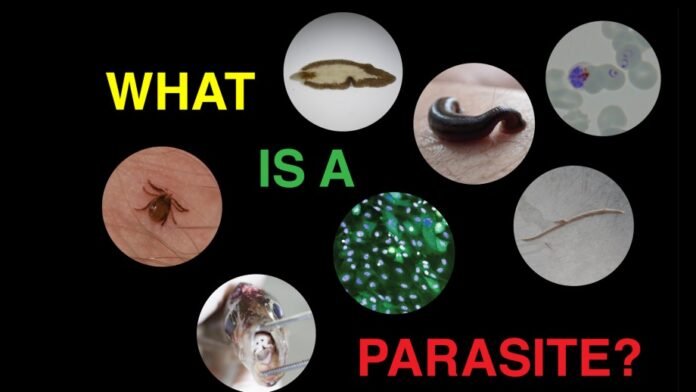Introduction
Parasites are organisms that live on or inside another organism and derive their nutrients from the host’s body. While some people may want to draw some similarities between other predators and parasites, one significant difference is that parasites are usually many times smaller in size than their host, and they all reproduce at a rapid rate.
Parasites
Parasites are a diverse group of organisms that have adapted to living on or inside other organisms to derive their nutrients. Parasites can have a range of effects on their host organisms, from mild irritation to severe illness and death, and can impact entire ecosystems through their effects on the host population. The parasite is not capable of fending for itself; thus, it uses the resources of the host to fuel its entire life cycle. It makes use of the host’s support for self-maintenance and sustenance.
Classification of Parasites
Parasites can be classified into three main categories based on their relationship with their host: endoparasites, ectoparasites, and parasitoids.
Endoparasites
Endoparasites are parasites that live inside their host’s body. For example tapeworms, nematodes, and flukes. These parasites can cause a range of diseases, including intestinal infections, liver disease, and anaemia.
Ectoparasites
Ectoparasites are parasites that live on the surface of their host’s body. For example lice, fleas, and ticks. These parasites can cause a range of diseases, including skin infections, Lyme disease, and Rocky Mountain spotted fever.
Parasitoids
Parasitoids are parasites that lay their eggs on or inside their host. For example some species of wasps. These parasites typically kill their host, as the developing larvae consume the host’s body tissues.
Characteristics of Parasites
Parasites have several characteristics. These characteristics include:
- Reduced or absent digestive system: Parasites rely on their host for nutrients and often have a reduced or no digestive system.
- Specialized structures for attachment: Many parasites have specialized structures, such as hooks, suckers, and spines, that allow them to attach to their host’s body.
- Reproductive adaptations: Parasites have adapted to their life cycle by developing specialized reproductive structures and strategies, such as the production of eggs or larvae that can survive in different environments.
- Host specificity: Many parasites are highly specific to their host species and can only survive and reproduce in that particular host.
Life Cycles of Parasites
The life cycle of a parasite typically involves several stages. It includes transmission, host invasion, and reproduction. The specifics of the life cycle depend on the type of parasite and the host it infects.
Endoparasites, for example, often have a complex life cycle that involves multiple hosts. For instance, the life cycle of the tapeworm includes a larval stage that infects an intermediate host, such as a pig or cow, before being transmitted to the final host, which is typically a human. Once inside the final host, the tapeworm can grow and reproduce, producing eggs that are passed out of the host’s body in the faeces and infecting new hosts.
Ectoparasites, on the other hand, typically have a simpler life cycle that involves direct transmission between hosts. For example, fleas can move from one host to another through direct contact, and female fleas can lay eggs on their host’s body, which then fall off and develop into new fleas.
Impact of Parasites on Host Organisms
Parasites can have a range of effects on their host organisms, from mild irritation to severe illness and death. Endoparasites, for example, can cause a range of diseases, including intestinal infections, liver disease, and anaemia. Some endoparasites, such as the malaria parasite, can be deadly and are responsible for millions of deaths each year.
Ectoparasites can also cause a range of diseases, including skin infections, Lyme disease, and Rocky Mountain spotted fever. In addition, ectoparasites can cause irritation and discomfort, leading to behavioural changes and reduced quality of life for the host.
Parasitoids typically kill their host and have a significant impact on the host population. This can have ripple effects throughout the ecosystem, as the loss of a key species can impact the food chain.
Parasites can also have indirect effects on their host organisms, such as changes in behaviour or susceptibility to other diseases. For example, a study found that rats infected with the Toxoplasma gondii parasite were more likely to approach and investigate the scent of cats, increasing their risk of predation. Parasites can also weaken the host’s immune system, making them more vulnerable to other infections.
FAQs
Q1. How do parasites avoid being attacked by the host’s immune system?
Ans. Parasites have evolved several strategies to avoid being attacked by the host’s immune system. Some parasites can change their surface antigens to evade detection by the host’s immune system, while others can suppress the host’s immune response or mimic host molecules to avoid detection.
Q2. Can parasites infect multiple host species?
Ans. Yes, many parasites can infect multiple host species, and some have complex life cycles that involve multiple hosts. For example, the malaria parasite can infect both humans and mosquitoes.
Q3. Can parasites be beneficial to their host?
Ans. Yes, some parasites can have a beneficial relationship with their host. For example, some gut bacteria that are classified as parasites can help their host digest food and provide other benefits to their host’s health.
Q4. Can parasites develop resistance to drugs?
Ans. Yes, parasites can develop resistance to drugs, just like bacteria can develop resistance to antibiotics. This is a significant challenge in the treatment of parasitic infections, and ongoing research is focused on developing new treatments and preventing the emergence of drug-resistant parasites.
Q5. Can parasites cause genetic changes in their host?
Ans. Yes, some parasites can cause genetic changes in their host. For example, the human papillomavirus (HPV) has been linked to the development of cervical cancer, which can result from changes in the host’s genetic material caused by the virus.
